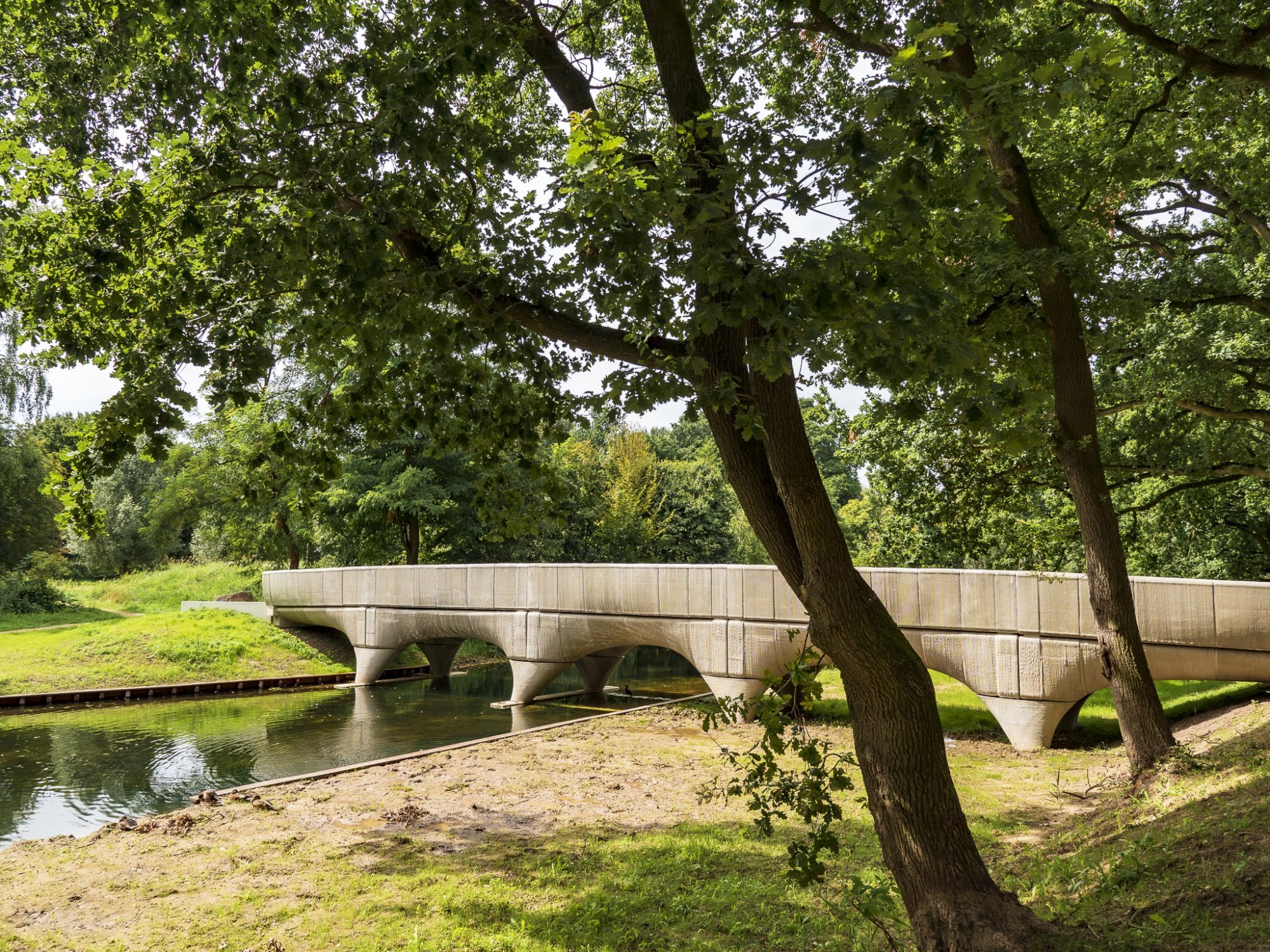
Not long ago, an engineering company in the Netherlands completed the world’s biggest 3D-printed bridge. The bridge is built in Nijmegen and spans 95 feet (25 meters) across a local canal. The construction was completed through a collaboration from the Eindhoven Institute of Technology, several engineering firms, and planning aid from the government.
The previous record-holding bridge in China is 10 feet shorter. This new bridge shows the advantage of 3D printing. For example, 3D printers use far less material than other construction techniques, as well as offering larger creative possibilities for the designers.
“The city of Nijmegen is very honoured to receive this innovative 3D printed bridge,” said Alderman Bert Velthuis of Nijmegen City Council to Good News Network. “We are a city of bridges, and this special, innovative bridge is a wonderful addition. The bridge leads to connection: in the design and construction phase it connected the different partners, and from now on the bridge connects our residents.”
This new bridge is also very beautiful. With sculpted conical feet it resembles a caterpillar.

The CEO of the printing company Weber Benelux explains to 3D Printing Industry how the bridge was designed on a computer and then printed piece by piece. It was assembled on-site and the process required 50 percent less material as the printer only deposits concrete where it is necessary for structural integrity.
The mold will be stored at the printing company for a long time, which means that the bridge could easily and quickly be commissioned and reprinted with only minor adjustments. This is a reproducibility rarely found in large civic projects. It means large savings in design, surveying, and consulting costs.
New technology like this uses resources more efficiently and will help the future come faster.





